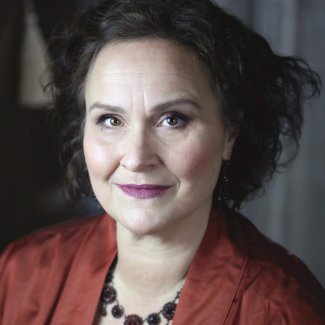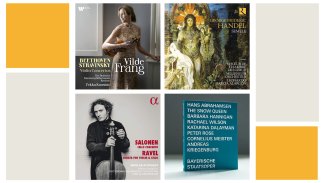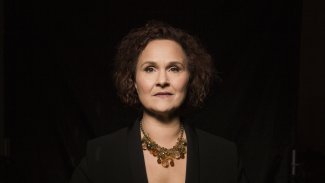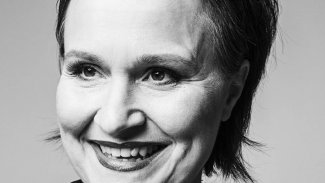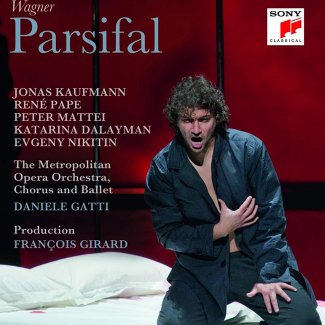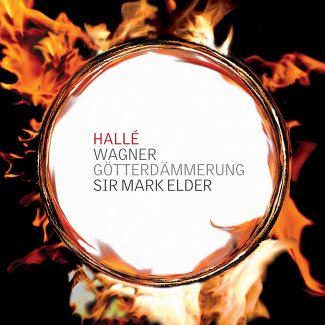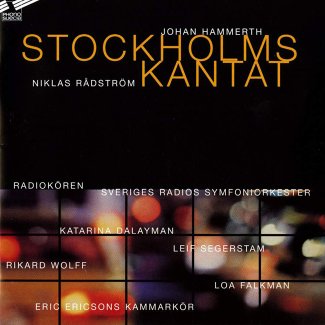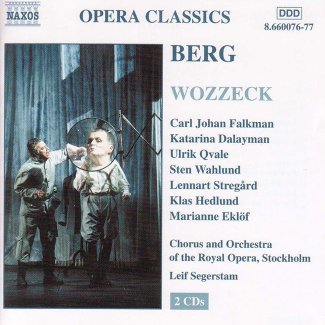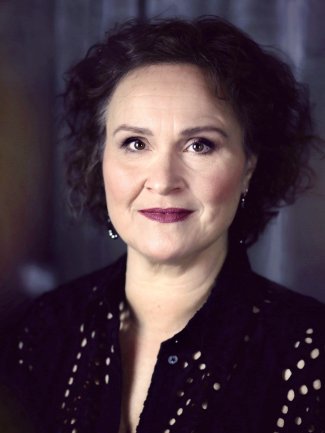
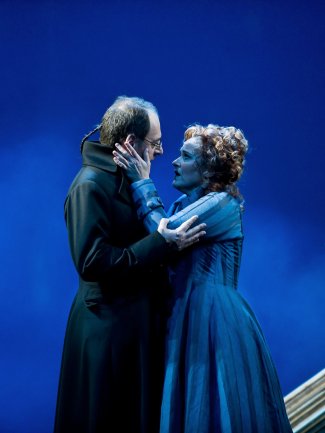
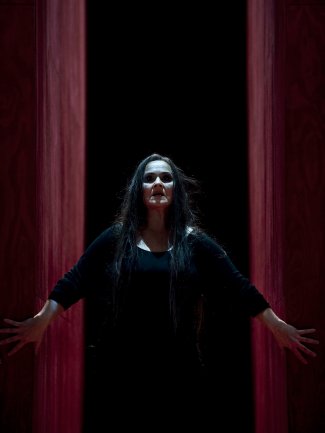
Katarina Dalayman
Links
“Few manage to encompass [Kundry’s] sensuality and her wild extremes as comprehensively as Dalayman’s first-class singing did.”
(Richard Fairman, Financial Times)
Hailed as “utterly compelling” by The Guardian, for her debut performances as Madame de Croissy in Barrie Kosky’s acclaimed production of Dialogues des Carmélites at Glyndebourne Festival Opera, Katarina Dalayman’s long and prestigious international career has been shaped by her strong dramatic interpretation and impeccable musicianship.
Dalayman has recently made a number of standout role debuts including Jezibaba (Rusalka) and Larina (Eugene Onegin) at Teatro Real Madrid and Mrs Sedley (Peter Grimes) at Opéra national de Lyon, all in acclaimed productions by Christof Loy, Klytämnestra (Elektra) at Washington National Opera, Herodias (Salome) at Royal Opera and Ballet, Covent Garden, and Fricka (Die Walküre) at Royal Swedish Opera. In the current season, she reprises her acclaimed Madame de Croissy in a reprise of Barrie Kosky’s production at Royal Danish Opera under Asher Fisch, and takes on the role of Marilyn Klinghoffer in John Adam’s The Death of Klinghoffer, conducted by Lawrence Renes at Maggio Musicale Fiorentino.
At Bayerische Staatsoper, where Dalayman previously appeared extensively in Wagner’s Ring Cycle, she created several characters in the world-premiere of Hans Abrahamsen‘s The Snow Queen, conducted by Cornelius Meister, and she joined Kirill Petrenko and the Akademie der Berliner Philharmoniker as La Zia Principessa in Puccini’s Suor Angelica at Berlin’s Philharmonie. Dalayman made her debut at Glyndebourne Festival Opera as Kabanicha (Kát’a Kabanová) under Music Director Robin Ticciati, reprising the role at Het Concertgebouw as part of NTR ZaterdagMatinee series with Netherlands Radio Philharmonic Orchestra under Karina Canellakis and with London Symphony Orchestra at Barbican Hall under Sir Simon Rattle. As Herodias in Barrie Kosky’s production of Salome, she recently debuted at Teatro dell’Opera di Roma under Marc Albrecht, and at Royal Swedish Opera gave her first performances as Verdi’s Amneris (Aida).
Show More
A strong concert performer, Dalayman has appeared with many major orchestras over her long career including Wiener Philharmoniker, NHK Symphony Orchestra Tokyo, Royal Stockholm Philharmonic Orchestra, Münchner Philharmoniker and with Boston Symphony Orchestra at Tanglewood and her varied repertoire includes classics such as Mahler’s Symphony No.8, Wagner’s Wesendonck Lieder and Schönberg’s Gurrelieder alongside less-often performed works like Nyström’s Sinfonia del Mare.
Dalayman’s discography includes Salome with Bergen Philharmonic Orchestra under Ed Gardner (Chandos), Kát’a Kabanová under Sir Simon Rattle (LSO Live), Marietta in Korngold’s Die tote Stadt with Royal Swedish Opera, Brünnhilde in Wagner’s Götterdämmerung with the Hallé and Sir Mark Elder and Brangäne (Tristan und Isolde) on DVD recorded live from the Metropolitan Opera. As Kundry (Parsifal), she was broadcast live around the world as part of the Metropolitan Opera’s ‘Live in HD’ series, conducted by Daniele Gatti.
Katarina Dalayman has been recognised for outstanding service to the arts by her homeland of Sweden by her special appointment as court singer to the King as well as with the royal medal Litteris et Artibus.
Contacts
Shirley Thomson Senior Director, VOICE at HarrisonParrott | Head of CSR
General Management excluding Scandinavia
Gallery
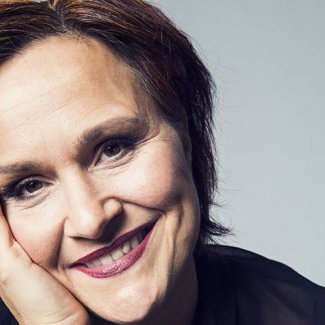
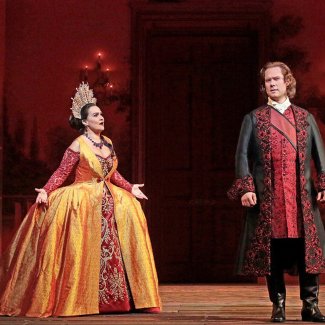
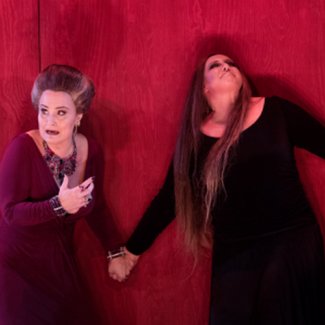
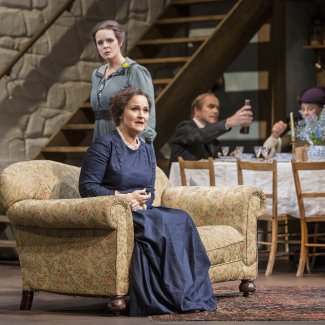
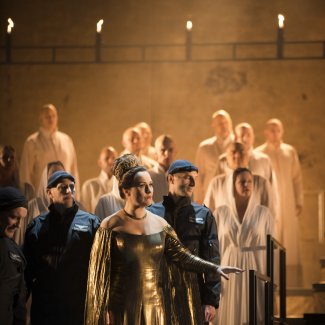
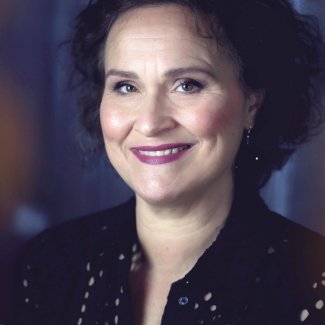
“Impeccable in her role as Larina, as the mother of the two girls, is the now Swedish mezzo-soprano (formerly dramatic soprano) Katarina Dalayman.”
“Katarina Dalayman’s Old Prioress is utterly compelling, the seeming erotic undertones of her death truly disturbing.”
“Almost stealing the show, however, is Katarina Dalayman as the ailing old prioress, losing her lifelong faith on her deathbed in a gruesome scene that will long haunt anyone who sees it.”
“Katarina Dalayman’s Kabanicha (one of opera’s most nightmarish mothers) was fearsome, her mezzo dripping with velveteen nastiness.”
“Not just because she had the glamorous advantage, the star of the evening was Katarina Dalayman’s Amneris in a performance of intensity and smooth, rich tone that got darker the lower it went.”
“[Katarina Dalayman’s] interpretation [of Klytaemnestra] was intense and believable: she was composed…one moment, the next moment, she was completely broken”
“Katarina Dalayman’s Kundry was the Prom’s other clinching performance and, equally vividly, it jumps off the recording. Her voice projects Kundry’s weird, conflicted psychology brilliantly and, with Elder’s support, steers us through the complexities of Act Two”
“Best of the soloists is Katarina Dalayman [as Kundry]”
“Of the protagonists, only one, Katarina Dalayman as Kundry, retains her lustre; her portrayal conjures dramatic presence out of every phrase and can compare with the best of those already available on disc. No one else matches her combination of intensity and vocal security.”
“Katarina Dalayman was an unusually sympathetic Fricka, with an easy top”
“Already remarkable in Das Rheingold, Katarina Dalayman is a tigress one can’t resist as Fricka. The ease with which the voice has evolved and homogenously developed in the lower registers validates her switch to more mezzo roles.”
“Katarina Dalayman (Fricka) charted every blow in their marital argument. Dalayman, regal and opulent of voice, wheedling and demanding the abandonment of Siegmund”
“Katarina Dalayman sang with fiery passion as the Foreign Princess.”
“The Swedish soprano Katarina Dalayman is subtly conniving as the Foreign Princess.”
“Katarina Dalayman – that most downwardly mobile of sopranos – brought eloquent warmth to the officially mezzo part of Jocasta.”
“Katarina Dalayman’s Judith was compellingly characterized”
